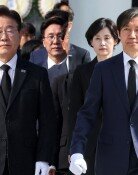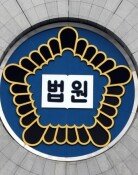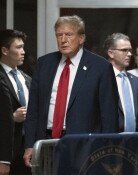[Editorial] A New U.S.-Japan-Australias Alliance Amid Worsening Korea-U.S. Relations
[Editorial] A New U.S.-Japan-Australias Alliance Amid Worsening Korea-U.S. Relations
Posted March. 16, 2007 15:00,
East Asia, where the Korean peninsula is located, is experiencing rapid, broad and intensive changes. The Australia-Japan security co-operation declaration announced on March 13 is a significant landmark. The two countries said, It is a cooperative scheme for anti-terrorism and emergency rescues, unlike the U.S.-Japan military alliance. However, it is the first time Japan signed a security pact with a third country besides the U.S. under its pacifist constitution after its defeat in 1945.
On the surface, it is a result of the mutual interests of Japan seeking to secure the safety of its oil channels, and Australias pursuit of maritime dominance over the Pacific region. But the prevailing view is that behind the security cooperation lies the Asia-Pacific strategy of the United States which attempts to keep China in check. This heralds a new chapter of a new tripartite alliance in the Asia-Pacific region between the U.S., Japan and Australia.
The Daily Yomiuri analyzed, The purpose lies in shifting the center of the Asia-Pacific security strategy from the U.S., Japan and Korea to the U.S., Japan and Australia. It is worth noting that the Japan-Australia joint declaration came after the series of contacts among foreign and defense ministers of the U.S., Japan and Australia and Vice President Dick Cheneys visit to Japan and Australia. The Japan-Australia joint declaration highlights the importance of a strategic dialogue of the three countries including the U.S.
Foreign Minister Song Min-soon of Korea said, The twos joint declaration will hopefully contribute to establishing peace and stability within the region. However, above all, we need to give a second thought to whether the U.S. doubts over the Korea-U.S. alliance and correspondingly, Japans Asia strategy, triggered the new tripartite alliance between the U.S., Japan and Australia.
The U.S.s Second Armitage report said, Korea is ranked together with China instead of the U.S. and Japan. We need to consider if the Korean governments tendency to break away from the U.S. triggered this realignment of Asias military order.
If so, our efforts to develop the six-party talks further within the framework of dialogue of security cooperation would turn futile. The worst scenario would be for Korea to be isolated between the maritime forces led by the U.S., Japan and Australia, and the inland forces led by China and Russia. If the power structure of East Asia is realigned as such, how can we afford to take the burden of diplomacy and security that follows it?
Korea needs to fully utilize its capacity in diplomacy in order to eliminate the North Korean nuclear weapons, the top priority in Koreas diplomatic security and to establish permanent peace on the Korean peninsula in a virtuous cycle. Otherwise, Korea could end up as a lost child in East Asia.
Headline News
- Israel prepares for retaliation against Iran
- Samsung reclaims top spot, surpassing Apple in smartphone market
- 77% of Koreans in 20s and 30s are 'Kangaroo Tribe' due to job crisis
- KBO referees embroiled in controversy over ABS decision concealment
- Inflation, oil price surge put double shock on global economy







